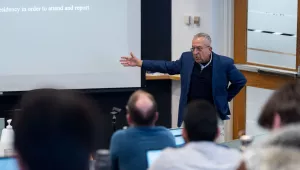
Abstract
An emerging literature points to the heterogeneous effects of violence on social norms and preferences in conflict-ridden societies. This article considers how responses to violence could be affected by in-group/out-group divisions. The research uses lab-in-the-field experiments to gauge norms for pro-social behavior in the aftermath of ethnic violence in post-war Kosovo. The study finds that one set of treatments (ethnicity) captures a negative legacy of violence on parochialism, while another (local/non-local) shows stronger evidence of pro-sociality and norm recovery. Examining individual variation in conflict exposure, it finds that victims of violence are more biased against ethnic out-groups and less pro-social to others outside of their local community. Balancing and matching on observables helps alleviate concerns that the results are driven by selection bias on victimization. Overall, the results suggest that the effects of violence may be contingent on the salience of in-group/out-group cues and boundaries.
Continue reading (log in may be required):DOI: https://doi.org/10.1017/S0007123416000028
Mironova, Vera and Sam Whitt. “Social Norms after Conflict Exposure and Victimization by Violence: Experimental Evidence from Kosovo.” British Journal of Political Science, 2016





